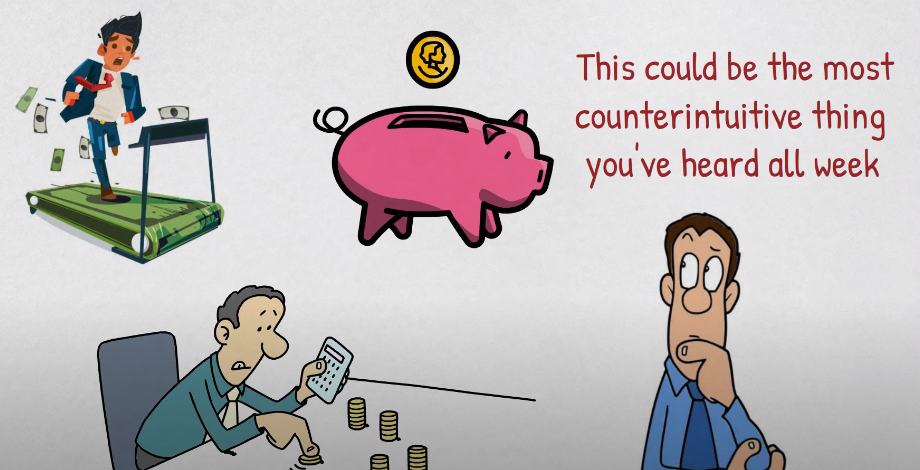Introduction
Ever feel like you’re stuck on a financial treadmill, running faster but going nowhere? What if your prized habit of saving money—the very thing you were taught is good for you—is actually holding you back?
This could be the most counter-intuitive thing you’ve heard all week, but saving money could make you poorer. I know this sounds like the craziest plot twist ever, so fasten your seat belts.
We’re diving deep into a financial rabbit hole that might change everything you thought you knew about money.
Michaels Story

I once read the story of a guy named Michael, a true champion in the art of saving money. Practically holding the Olympic gold medal in frugality, this guy could stretch a dollar so thin that it became transparent.
He religiously saved 30 percent of his paycheck, putting it away in his savings account like clockwork. But after 10 grueling years of this financial tightrope act, he had a revelation.
He was in the exact same financial position as a decade ago. Imagine studying hard your whole life only to discover you never graduated past the 10th grade. That’s precisely what happened to him financially. Why did Michael find himself in this never-ending cycle of financial frustration while he was diligently stashing his money away like a squirrel preparing for a never-ending winter?
Inflation

Inflation is Michael’s nightmare. It’s like a blockbuster horror movie that so many people were unwittingly starring in. We might as well call it “nightmare on saving street.” But here’s the thing: the story of inflation isn’t confined to one person or one country.
It’s an international saga, a silent thief that roams across borders, stealthily affecting economies worldwide. As the average annual inflation rate ranges between two and three percent, prices climb gradually, impacting the cost of living. Meanwhile, your money in a regular savings account is practically taking a nap at a meager one percent, and that’s if you’re lucky.
Most savings accounts offer a return of around half of one percent or even less. Crunch the numbers, and you’ll uncover the truth. This quiet erosion means you’re losing out on nearly two percent of your hard-earned money every single year, which accumulates over time.







